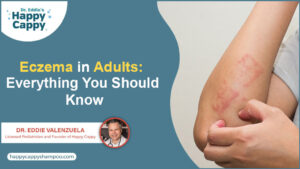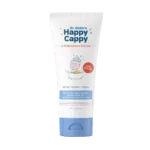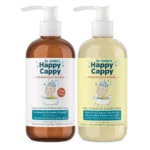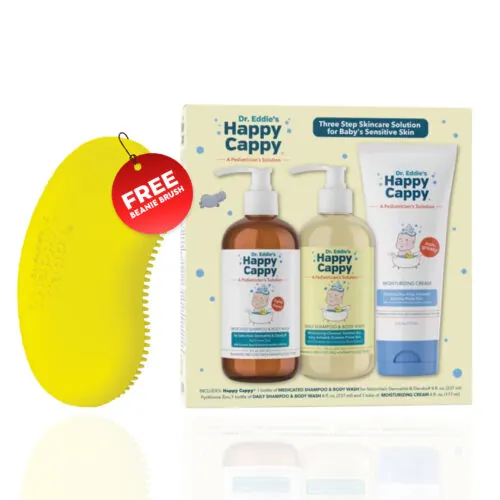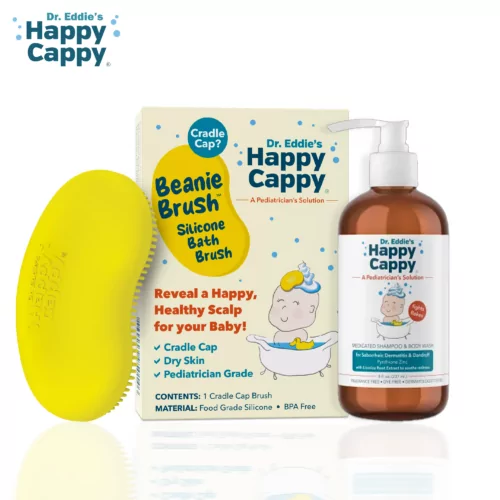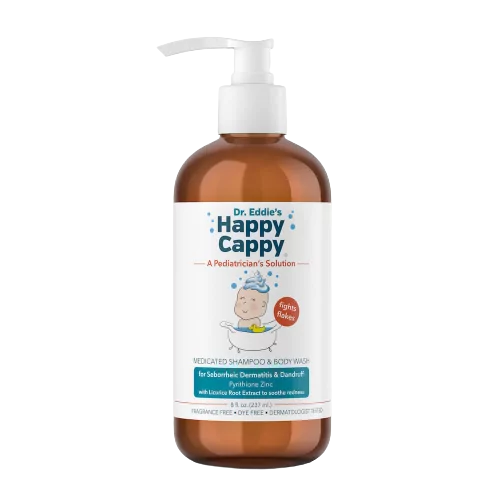When you’re a baby with eczema, you may be uncomfortable, but you don’t mentally sweat it.
You don’t fret about which onesie will best cover up your symptoms or worry about what other babies will think of you. That kind of mental distress is reserved for adults, who may find their symptoms embarrassing, difficult to control, and challenging to hide
While Eczema in adults can be annoying, frustrating, embarrassing, and even painful, it is manageable.
What is Eczema?
Eczema, also known as eczematous dermatitis, is an umbrella term for a group of skin conditions that irritate and inflame, literally making you uncomfortable in your own skin. But Eczema most commonly refers to the condition called atopic dermatitis.
In atopic dermatitis, the skin barrier’s ability to naturally protect itself is damaged, making the skin vulnerable to infection and dryness. This is sensitive skin to the max. Eczema in adults is very common according to National Eczema Association –31.6 million people in the US experience it.
Eczema Symptoms
No two cases are alike, so you may display one or two symptoms or the entire gamut. Itching could be mild, moderate, or unbearable. It may intensify at night when the body naturally cools (and cooler body temperatures increase the sensation of itchiness). You can have seasonal flare-ups or long periods of dormancy.
These are assorted Eczema symptoms:
- Red, inflamed skin
- Dry skin
- Cracked skin
- Peeling and flaking
- Itchiness: Mild to Severe
- Dark patches of skin
- Leathery, thickened skin texture from years of scratching
- Bumps or blisters that may weep fluid
What Causes Eczema in Adults?
First off, you didn’t “catch” Eczema or do anything to cause it.
No one knows what precisely causes the skin condition, although scientists do know it is caused by a combination of genetic and environmental factors. It often runs in families with a history of asthma, hay fever, and other allergies.
Other environmental factors that can trigger eczema are:
- Impaired skin barrier
- Dry skin
- Extreme weather conditions
- Irritants
- Allergens
- Chemicals in products
- Stress
You may even be more prone to food sensitivities if you have Eczema.
Adult Onset Atopic Dermatitis
If you are wondering if you can get eczema as an adult, then the answer is yes. While many people consider Eczema a childhood disease, and it prevails more in early childhood, there is also adult-onset Eczema. You may hear doctors refer to it as Adult Onset Atopic Dermatitis or adult atopic dermatitis (AD). While a diagnosis can happen anytime in adulthood, the peak years for developing it is in your 50s.
Some people may develop eczema in their childhood and then experience flare-ups in adulthood. While others may experience it for the first time as an adult which is also referred to as sudden eczema in adults.
The Different Kinds of Adult Eczema
Eczema comes in a few variations which may demand slightly different treatment approaches, making it essential to get an accurate diagnosis from a doctor. A routine physical exam is all it takes.
The different kinds of Eczema are:
- Atopic Dermatitis (most common)
- Contact Dermatitis
- Dyshidrotic Eczema
- Discoid Eczema (also known as Nummular Eczema)
- Seborrheic Dermatitis (commonly called Cradle Cap in babies)
- Juvenile Plantar Dermatosis (commonly called Sweaty Sock Syndrome)
- Varicose Eczema (also known as Venous, Gravitational or Stasis Dermatitis)
- Asteatotic eczema
Adult Vs. Child Atopic Dermatitis (Eczema)
The majority of babies outgrow the skin condition by toddlerhood. However, about a 1/3 of eczema babies grow into adults who experience flare-ups throughout their lives. The eczema can even sit dormant for years, emerging years later and surprising the person who may not even remember having had the condition.
Baby Eczema tends to concentrate on the face, neck, wrists, ankles, and “bending” areas like elbows and knees. Eczema in adults also likes to show up on the “bending areas”. However, flexural lesions are less and it is more prevalent on the hands and the nape of the neck.
Both children and adults can also get Eczema on the eyelids and in the area around the eyes. Eczema tends to look and feel slightly different as you age. If you remember having eczema rashes as a child, you may notice they look drier and darker as an adult.
Similarities Between Adult and Baby Eczema
Even though adult eczema is quite different from the one babies or children experience. Still there are many similarities between adult and baby eczema some of which are:
- Can cause intense itching
- Disrupt sleep
- Appear anywhere on the skin
- Enhance the risk of developing hay fever, asthma, and allergies
- Extremely dry skin
- Cause skin infection if left untreated.
Eczema Treatment
You could have either adult-onset eczema or a recurrence of the Eczema you had as a child.
Once you know you have it, it is essential to familiarize yourself with common triggers to avoid flare-ups wherever possible.
This includes talking to your doctor about your potential triggers as well as monitoring yourself, and getting to know and understand your body’s reactions to assorted factors. Triggers can be genetic or environmental.
As your own best guardian against Eczema flare-ups, it’s your job to:
- Know your triggers so you can avoid exposure
- Implement a daily bathing and moisturizing routine
You may not be able to eliminate a beloved pet, or control the cold, or the dry weather that triggers your symptoms, but the right eczema skincare routine will restore the essential moisture your skin needs.
Skincare Routine
- When you bathe, use warm (not hot) water.
- Take shorter baths around 5 to 10 minutes.
- Use gentle baby eczema shampoo and body wash to cleanse the skin.
- Whatever you put on your skin should be formulated for itchy, dry, irritated skin. That means your eczema shampoo should have no fragrances, dyes, parabens, or sulfates.
- Your skin is already vulnerable. Restoring hydration at bath time adds a protective and soothing layer. Cleansers and creams with glycerine are recommended.
- After taking a bath moisturize your skin with an eczema cream, the best time is when the skin is a little damp. The skin absorbs more moisture at that time.
- Wear loose-fitting and breathable clothing to avoid further irritation.
- Use laundry detergents that are free from fragrances as these can exacerbate the condition. If you know what is triggering your eczema then try avoiding it.
The best eczema cream for adults is the one that is hypoallergenic and free from the following:
- Parabens
- Sulfate
- Fragrances
- Artificial dyes
- Phthalates
In severe cases, your doctor may prescribe corticosteroids, wet wrap therapy, and light therapy as well as over-the-counter oils, ointments, or creams.
Living With Eczema
Taking the time to use the right products for eczema, eliminating the wrong ones, and giving your skin the TLC it needs will go a long way in bringing relief and symptom improvement.
In this era of heightened awareness plus widespread access to products formulated for sensitive skin, from cleansers and creams to detergents and household cleaners…it’s easier than ever to live beautifully and make your peace with Eczema.
Conclusion
Eczema in adults is very common. Some adults may have experienced eczema in their childhood and then experience flare-ups when they grow old. While others may experience eczema for the first time in adulthood. In this case, it is classified as adult-onset eczema.
Eczema whether experienced in childhood or adulthood causes itchy, irritated, inflamed, dry skin. It causes red rashes to develop on the skin. Even though there is no permanent cure for eczema it can easily be managed by making a few lifestyle changes. Make sure that you incorporate the use of a gentle eczema shampoo and body wash to cleanse the skin, and a hypoallergenic eczema cream to moisturize the skin at least twice daily in your skincare routine.
If you are searching for products that can help you soothe the itching, redness, and irritation associated with eczema then try using Happy Cappy Two-Step Eczema Skincare Routine. It contains an irritant-free daily eczema shampoo and a moisturizing eczema cream to restore the skin’s natural barrier and keep it hydrated.
FAQs
Can adults experience eczema?
Eczema is a chronic skin condition, meaning it can appear whenever it wants. It can appear at any age: teenage, adulthood, or even old age. If you had eczema when you were young or if eczema runs in your family, then there are more chances that you may experience eczema flare-ups in adulthood.
Is adult-onset eczema contagious?
No, eczema is not caused by any bacteria or virus, so it is not contagious and can not spread from one person to another by touching, breathing, or coming in contact with it.
Is adult eczema serious?
It depends on the severity of the condition. The condition might worsen if you have mild eczema and do not take proper care and treatment. While mild eczema may cause itching and cracking of the skin. A severe eczema may cause blisters that can ooze and other skin infections from scratching.
Can adult eczema cause depression?
Eczema in adults can cause depression and anxiety. Because adults are more conscious about how they look and act, continuous itch and visible affected skin from eczema may make them more worried.
How long does it take for eczema in adults to clear?
Mild cases of eczema may clear up in a few weeks with proper care and treatment. Severe cases of eczema in adults may take more time to resolve and need customized treatment plans from the doctor, which may include the use of steroid creams and ointments.

